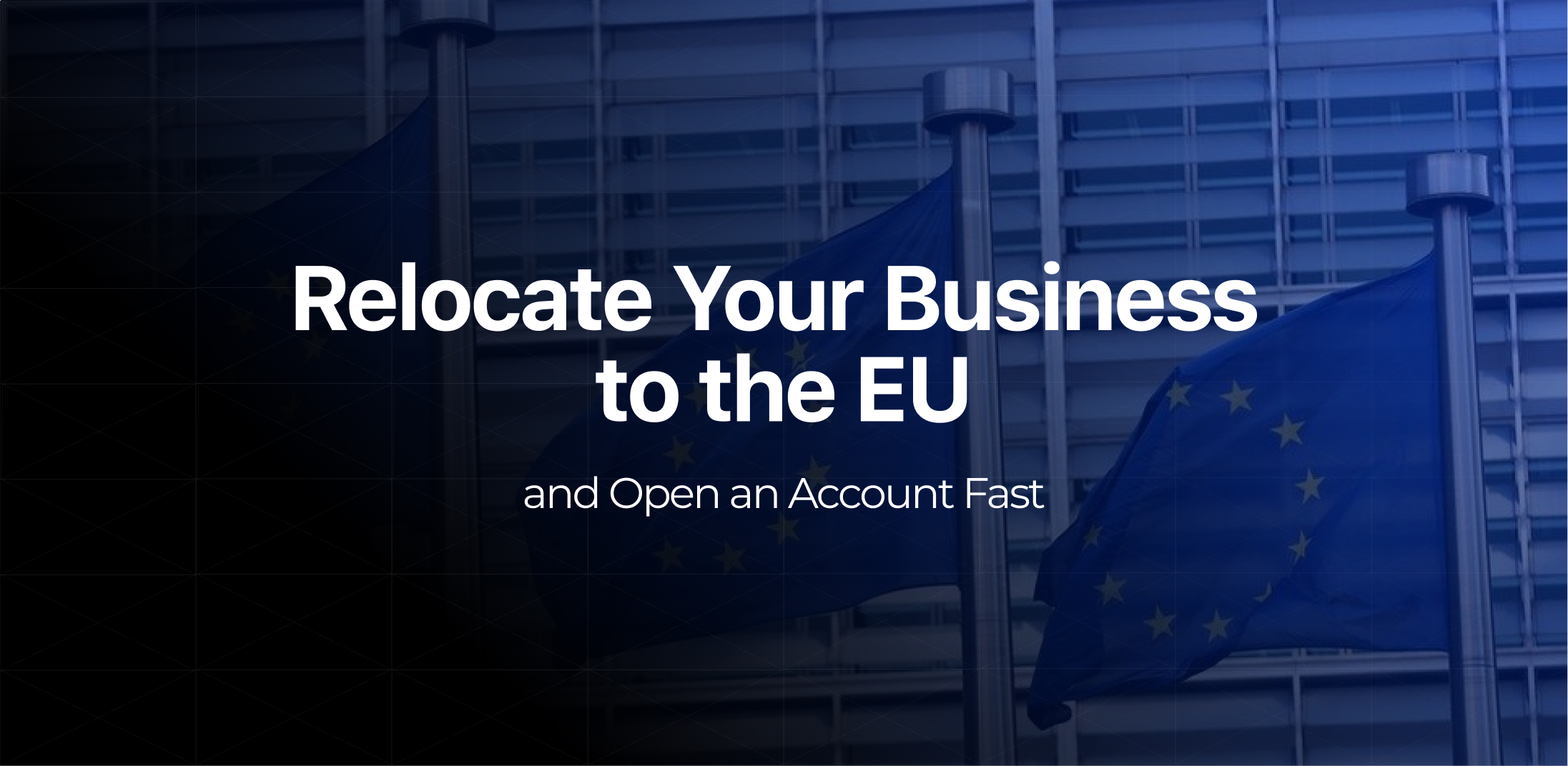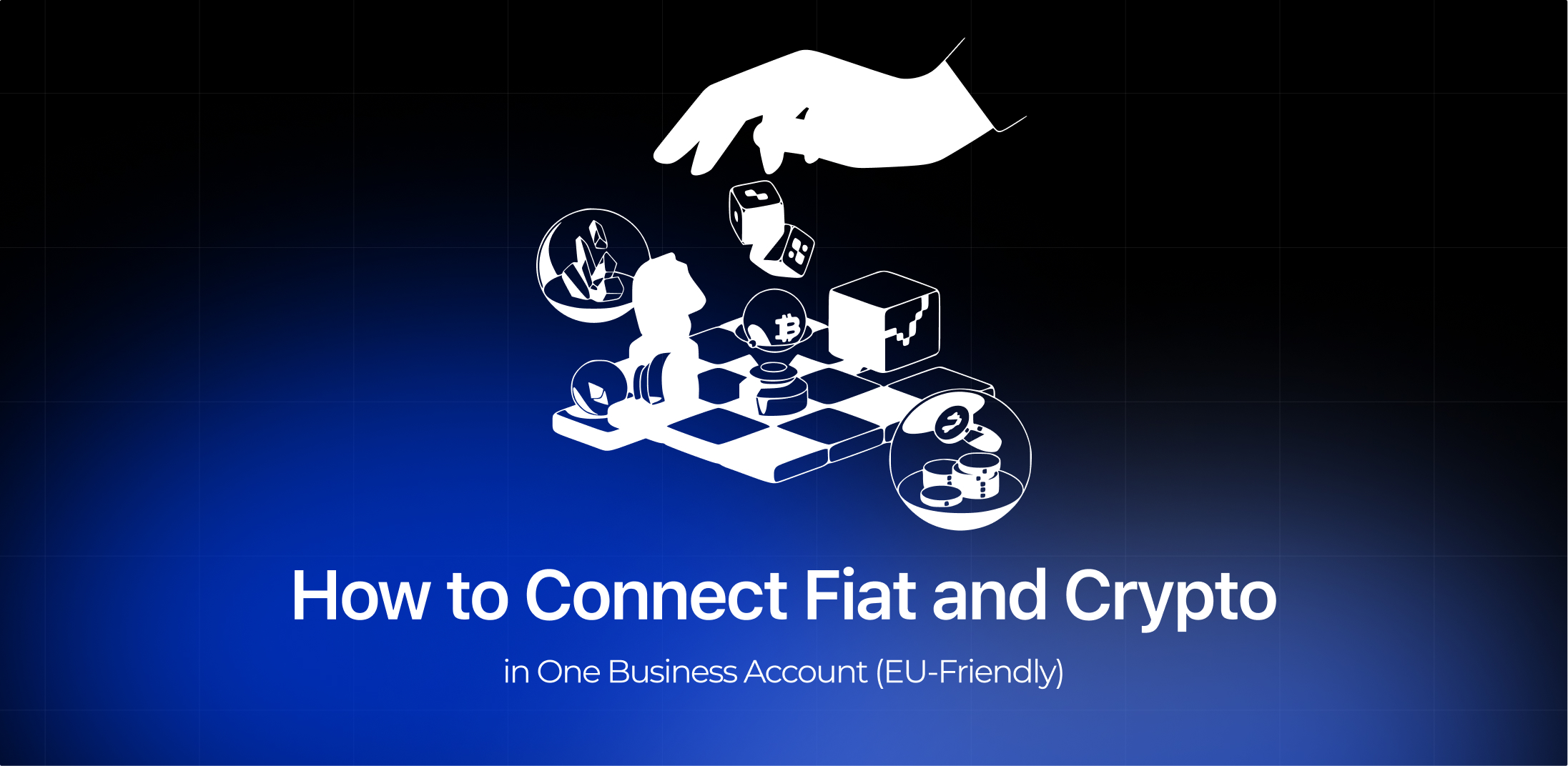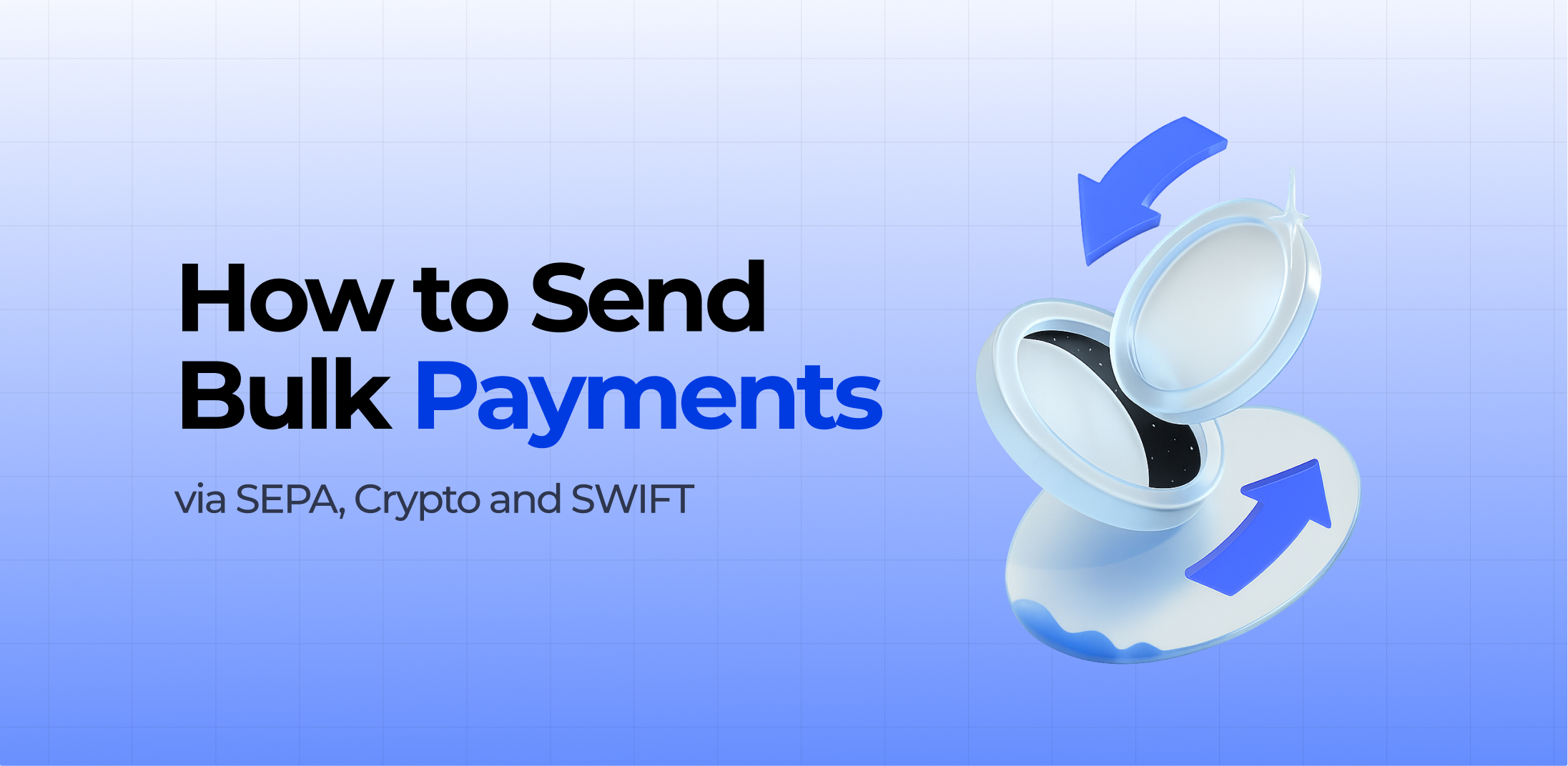Expanding your company into Europe unlocks a wealth of strategic advantages – from simplified regulatory procedures to direct access to one of the world’s most dynamic economic regions. While entrepreneurs and growing firms are often eager to enter the EU market, they frequently encounter hurdles such as strict banking criteria, legal compliance demands, and the pressure to integrate quickly.
Fortunately, the emergence of Electronic Money Institutions (EMIs) and the evolution of digital financial services have made it significantly more straightforward to relocate business to EU – Business Transition. Today, opening an EU-based business account can be done with speed and efficiency, even for non-resident companies. In this article, we explore the key benefits of shifting your operations to Europe, the pivotal role EMIs play in assisting foreign businesses, and provide a step-by-step roadmap to ensure a smooth and successful transition.
Why relocate your business to Europe?
Choosing to relocate business to Europe goes far beyond a change in location – it’s a forward-looking strategy designed to accelerate your company’s long-term success. The European Union, with its 27 member states, offers access to a unified economic area that serves more than 440 million consumers and generates over $15 trillion in GDP. For businesses aiming to scale and compete globally, Europe presents unmatched opportunities.
1. Seamless entry into the single market
A primary advantage when you relocate business to Europe is the ability to operate within the EU Single Market. This economic zone eliminates internal trade barriers, ensuring the smooth flow of goods, services, capital, and labor. As a result, companies benefit from streamlined import/export processes, standardized product regulations, and simplified tax structures such as VAT.
2. Reliable legal and financial systems
The European Union is known for its dependable legal frameworks and transparent financial governance. Businesses benefit from clear rules on data protection (notably the GDPR), fair employment laws, and strong investor protection. Moreover, operating within the eurozone helps minimize currency risk and promotes financial stability.
3. Strong innovation landscape and talent pool
Nations like Ireland, Estonia, Germany, and the Netherlands have become magnets for innovation and entrepreneurship. With access to world-class research centers, a digitally savvy workforce, and supportive governmental initiatives, the EU is an ideal environment for tech startups and high-growth ventures.
Effortlessly set up your EU business account
When planning to shift your operations to Europe, securing a business account in the EU is a top priority. However, conventional banks can pose challenges with their extended verification procedures and rigid residency prerequisites – especially for company owners or directors based outside the EU. Fortunately, innovative financial platforms such as Electronic Money Institutions (EMIs) offer a faster, more flexible alternative tailored to the needs of international businesses.
Understanding EMIs: the smart banking alternative for foreign businesses

An Electronic Money Institution (EMI) is a licensed financial entity designed to provide essential financial services, such as issuing IBANs, handling payments, and facilitating foreign currency operations, without functioning as a traditional bank. EMIs are fully regulated by financial authorities within the EU and must adhere to stringent anti-money laundering laws and capital reserve standards.
For international companies aiming to open EU business account solutions quickly and efficiently, EMIs offer a compelling option. Their streamlined services are particularly well-suited for non-EU residents and foreign entities seeking flexible banking alternatives.
Top benefits of choosing an EMI
- Fast Setup. Unlike conventional banks, EMIs can activate accounts in just a few days.
- Digital Onboarding. Fully remote registration allows foreign founders to complete the process without setting foot in Europe.
- Multi-Currency Capabilities. Easily receive, store, and manage funds in various global currencies.
- Cost-Effective Fees. Lower maintenance and transaction charges compared to standard banks.
- Custom Features. From API connectivity and platform integrations to dedicated account support, EMIs often provide a more personalized financial experience.
Step-by-Step roadmap: relocating your business and opening an EU account quickly
Step 1: Select the most suitable EU country
Each European Union nation presents unique benefits tailored to different business strategies. Your choice should align with your company’s industry, scale, and long-term goals. Consider these standout jurisdictions:
- Estonia – Ideal for remote entrepreneurs, thanks to its pioneering e-Residency program that enables full online business management.
- Ireland – Famed for its favorable corporate tax system and strong ties with global tech giants.
- Netherlands – Known for its top-tier logistics, fintech ecosystem, and international business appeal.
- Cyprus – Offers generous tax regimes and is building a strong reputation in the fintech world.
- Lithuania – Rapidly becoming a fintech and EMI hub due to its innovation-friendly regulation.
Step 2: Officially incorporate your business
Once you’ve identified the jurisdiction, the incorporation process begins. While steps can vary slightly by country, most include:
- Choosing a legal structure such as an LLC, subsidiary, or branch;
- Securing a company name;
- Drafting and submitting incorporation documents;
- Providing identity verification and address details for all directors and shareholders;
- Appointing a local agent or registered office (if required).
Many EU countries support remote or digital registration, which significantly streamlines the relocation business to the EU – Business Transition process.
Step 3: Open an EU Business Account via an EMI
After your company is legally established, the next crucial step is to open an EU business account. Partnering with an Electronic Money Institution (EMI) is often the most efficient route, especially for non-EU residents. These financial providers cater to international businesses with flexible onboarding and digital services. To apply, you’ll typically need to submit:
- Your company’s registration certificate;
- The Articles of Association;
- Proof of your company’s registered address;
- Valid identification for directors (passport or national ID);
- A description of your intended business activity.
EMIs are familiar with working across borders and generally accept electronically certified or notarized documents, making the process both fast and convenient.
Step 4: Launch your financial operations
Once your EMI business account is up and running, you can begin operating within the EU economic zone. Key functionalities include:
- Sending and receiving payments via SEPA or SWIFT;
- Integrating with major e-commerce and payment platforms like PayPal, Shopify, and Stripe;
- Converting and managing multiple currencies for international transactions;
- Monitoring real-time account activity through digital dashboards;
- Syncing your account with accounting software for smoother financial reporting and compliance.
This setup allows you to manage everything from daily payments to cross-border sales without the limitations of traditional banking.
Key Obstacles Faced by International Businesses – and How EMIs Help Overcome Them

Expanding into the EU can bring valuable growth opportunities, but foreign-owned companies often encounter several financial hurdles. Here’s how partnering with an EMI for foreign entities can simplify the process:
1. Limited access to traditional banking
Many conventional banks remain hesitant to work with companies owned by non-EU residents, often requiring physical presence for account setup or imposing lengthy approval procedures. In contrast, an EMI for foreign entities offers remote onboarding through fully digital processes, making it easy to open an EU business account without delay or the need for travel.
2. Complex Currency Exchange Issues
Operating in multiple currencies, like USD, GBP, or others outside the Eurozone, can result in high conversion costs and operational inefficiencies. EMIs address this by offering multi-currency accounts and highly competitive foreign exchange rates, giving businesses more flexibility and cost control when managing international payments.
3. Regulatory Bottlenecks and KYC Delays
While regulatory compliance remains essential, EMIs tend to be more adaptable than traditional banks. A modern EMI for foreign entities typically provides faster identity verification, supports electronic documentation, and delivers a streamlined Know Your Customer (KYC) experience tailored to global business structures.
How to select the best EMI for your business needs
Finding the right EMI for foreign entities is a critical step toward smooth financial operations in the EU. With a growing number of providers available, it’s important to evaluate each one based on several essential factors to ensure they align with your business model and growth plans.
Regulatory oversight
Make sure the EMI operates under a valid license issued by a reputable European authority – such as the Bank of Lithuania or the UK’s FCA for EU-linked branches. Proper regulation ensures compliance, security, and long-term reliability.
Currency and market coverage
Your chosen EMI should support the currencies and regions most relevant to your operations. Whether you’re trading in USD, EUR, GBP, or other markets, look for providers offering multi-currency support and broad payment capabilities.
Scalability and limits
Evaluate whether the EMI can accommodate your expected transaction volume. This is especially important if your business handles large payments or anticipates rapid growth.
Speed of Onboarding
Time matters – so confirm how quickly the account setup process can be completed. Top EMIs offer fast-track onboarding that can get your account active within a few days.
Customer Service Quality
Opt for an EMI that provides responsive, multilingual customer support and offers a dedicated account manager to help you navigate any issues or complexities.
Transparent Pricing
Review the full pricing structure, including monthly fees, currency conversion charges, and wire transfer costs. A clear and competitive fee model will prevent hidden costs from eating into your margins.
Some well-regarded EMIs across Europe include PaySaxas, Wise Business, Revolut Business, N26 Business, and Payoneer – each offering distinct advantages based on your business type, industry, and region of activity.
Leveraging Europe’s digital payment ecosystem
Once your business account with an EMI is up and running, you gain immediate access to the EU’s advanced digital finance infrastructure. This includes a wide range of tools and systems designed to streamline operations and support seamless financial interactions across the region.
- SEPA Transfers. Enjoy quick, low-cost Eurozone payments through the Single Euro Payments Area framework, ensuring fast and standardized money movement.
- EU-Based IBANs. Strengthen business credibility and simplify transactions with local International Bank Account Numbers, ideal for both clients and suppliers.
- Open Banking Integration. Utilize cutting-edge APIs to automate processes like payment initiation, account reconciliation, and real-time reporting.
- PSD2-Ready Framework. Benefit from secure, interoperable payment services that comply with the EU’s revised Payment Services Directive, enhancing both protection and performance.
By tapping into these technologies, businesses not only accelerate financial workflows but also gain greater clarity, reduce operational risks, and deliver a smoother experience to their customers and partners.
Real-World Example: SaaS Firm Expands from Asia to the European Market

A tech-driven SaaS provider headquartered in Singapore set its sights on European expansion. Rather than facing the complexities of traditional banking systems, the company opted for a more agile approach.
They chose to relocate their business to Europe by registering in Estonia using the country’s innovative e-Residency program, and they teamed up with an EMI for foreign entities licensed in Lithuania. In just 10 working days, the company achieved the following:
- Completed remote company formation through Estonia’s digital platform;
- Successfully managed to open an EU business account in euros;
- Activated SEPA payment capabilities for efficient client invoicing;
- Enabled multi-currency wallets in EUR, GBP, and USD to support global clients;
- Connected their EMI account to Xero for automated accounting and real-time financial oversight.
This digital-first setup allowed the business to go live in the EU almost instantly – avoiding in-person bureaucracy, reducing foreign exchange losses, and ensuring compliance with EU financial and tax regulations.
Final takeaway: expand with certainty and speed
Whether you’re a lean startup entering new markets or an established enterprise looking for a stable regulatory base, the European Union offers a wealth of strategic advantages. Thanks to modern fintech solutions and the flexibility of EMIs for foreign entities, it’s now easier than ever to relocate your business to Europe and open an EU business account – all without setting foot on the continent. To ensure a successful transition, remember to:
- Carefully select the most advantageous EU jurisdiction for your goals;
- Stay informed about legal, tax, and regulatory frameworks;
- Choose an EMI that fits your transaction needs and business model.
With the right plan in place, your company can seamlessly tap into the EU market, streamline cross-border operations, and build a foundation for long-term international success.
PaySaxas operates under EMI (Finland), CASP (Lithuania), and PSP/MSB (Canada) registrations. All services are subject to regulatory approval and client risk profile. Not all services may be available in all jurisdictions.







